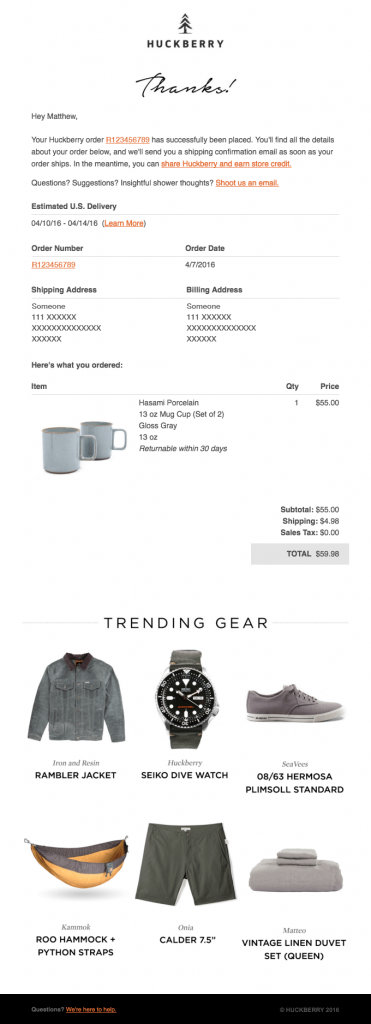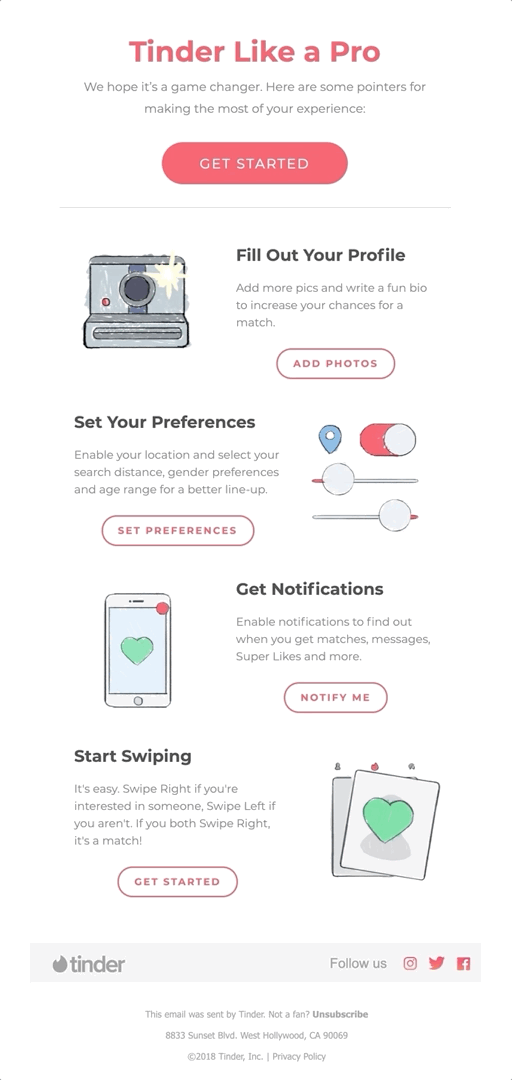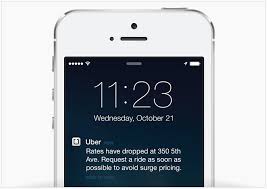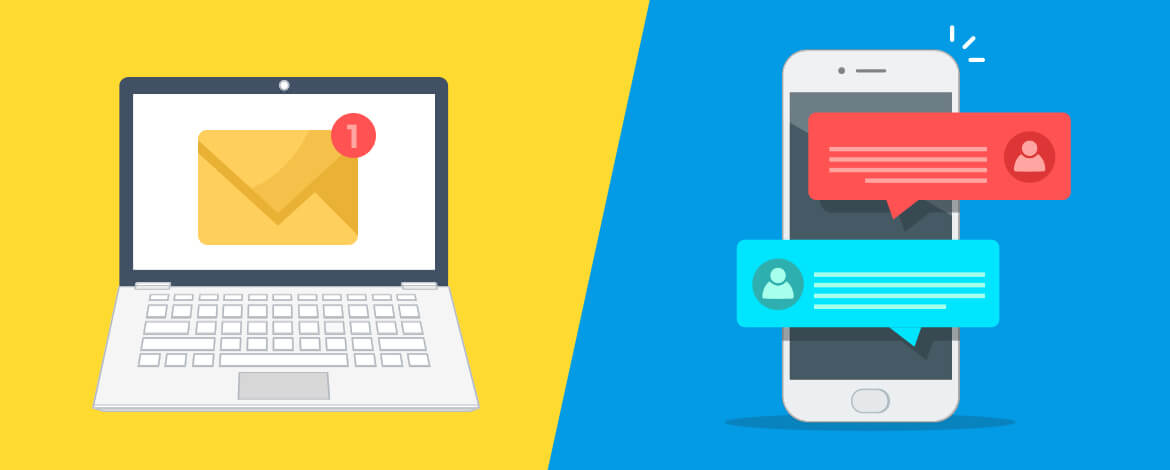While emails have been in the marketing world for a long time, push notifications are a relatively new concept. Both channels in a look might appear the same but, they do have certain differences. In fact, both of them have their share of pros and cons.
Email marketing
With 251.8 million monthly email users across the globe, leveraging email marketing is the key to success for businesses. In fact, it can even lower your overall marketing cost. Let’s have a broader view of how it works.
1. Apt for marketing content
Email marketing with its ability to keep in touch with the customer base on a consistent basis is an apt tool for marketing and promoting a business’s content. From allowing users to take a look at a business’s offering to letting them choose to click-through what they like, emails help users preview everything at their leisure. Moreover, it serves as a great tool for giving someone information that they can refer later. Also, it is ideal for including information like shipping details, invoices etc., thereby, working as an efficient sales tool. See how Modernica has leveraged it smartly.

2. Ideal for sensitive or elaborate information
Emails work better for sensitive or elaborate data. For instance, confidential information such as log in credentials, billing details is better when delivered to your inbox. Here’s an example of a billing email from Huckberry.

In addition, bigger and longer content such as educational tutorials and e-books are easier to read through the email. In fact, any content that needs to be accessed consistently or at a later time should be delivered to the inbox.
3. It’s all about customization
Emails give you the option of customizing your message the way you want. From including plain text and images to adding HTML and CSS content, you can use it all to enhance the visual appeal and creativity of your message. Tinder surely knows how to do it like a pro.

4. Targeting becomes easy
Emails allow you to segment your audience and target them on varied criteria such as age, gender, income, sales funnel position etc. It wouldn’t only help you retain existing customers but also bring onboard new and loyal customers.
So, you see, how email marketing, if done right can help you get an edge over your competitors? Though it has its share of cons, it mostly has to do with user errors and not the medium itself. For instance, if you don’t segment well or use subject lines with spam words, your email marketing strategy probably wouldn’t work. However, it isn’t an instant way of communication like push notifications that pops up on the screen at once. So, the click-through rates are comparatively lower than another channel of communication such as SMS or push notifications. But, all in all, despite it, email provides better ROI than any other channel of communication.
Push notifications
A push notification gets delivered directly to the digital device of a user. Be it a smartphone or a laptop, it appears on the screen instantly and is seen by the user at once. This certainly is an added advantage of push notifications. However, it requires a lot of strategic approach to function properly. From timing and segmentation to the frequency and consistency, you need to keep a check on all to nail your push notification strategy. Here’s a list of its pros and cons.
1. A quick source of information
As mentioned already, push notifications to serve as an instant and quick mode of communication. That’s why it is ideal for sending order reminders or time-sensitive offers. In short, it is all about sending useful information to the user at once that might be helpful for them. See how few brands leverage it conveniently.

2. Works as a smooth cross delivery platform
Push notifications have an edge over other communication channels because of its ability to reach the customers irrespective of the location or place they are. While emails can be seen only when the user opens it, push notifications to appear on the screen without the user having to take any further action. As a result, brands can easily connect with customers without having to work on strategies like mobile or desktop optimization.
3. Better click-through rates
Since the visibility and timeliness of push notifications are more than emails, customers tend to click-through it more often. Emails, on the other hand, require a lot of hard work to grab the customer’s attention or even earn a response.
4. Easy subscription process
Sure, push notification requires you to have explicit consent from the user, the opt-in process is very easy for it. All you need to do is set a prompt “Allow” when a customer visits your website. Once the user sees and accepts it, they become your subscribers instantly. While it helps customers to stay updated with the latest information and offers without having to share their email address or worrying about spam messages, marketers can also be free from the worry of incomplete fields, fake email addresses etc.
In summary, push notifications can work seamlessly to boost your brand and business if you schedule it well along with including strategies like segmentation based on location and preferences. However, it is a little disruptive in nature. Since it hinders the daily activities such as eating, working or socialising of the users, it might at times be the reason for their annoyance and irritation. So, it’s better to be safe than sorry and avoid mistakes such as sending irrelevant or general updates or indulging in aggressive sales tactics. All in all, make sure you use push notifications the right way to offer value to your customer base.
Now, since you know it all about emails and push notifications, the question is – which one is better? Well, both have their share of advantages and disadvantages. While push notifications might work for some brands, the others might choose email marketing to suit its business needs. It all depends on what you want from your brand and how you wish to function your business. However, whether you choose emails or go for push notifications, do not forget to focus on quality. From sending relevant and great content to promoting the product at the right time, make sure you follow these measures to ace your strategy well.
Wrap up
Email marketing and push notifications serve similar purposes with a different approach. While push notifications are all about sending updates, news and instant information, emails work more towards sending information that can be accessed later or delivering messages that don’t require an instant response. So, choose the strategy that best suits your business needs and make the most out of it.






Kevin George
Latest posts by Kevin George (see all)
Email marketing amidst COVID-19 outbreak
Creating an Aesthetic Landing Page With AWeber Landing Page Builder